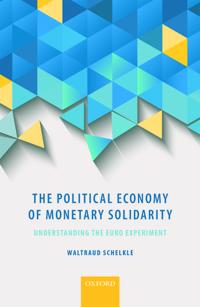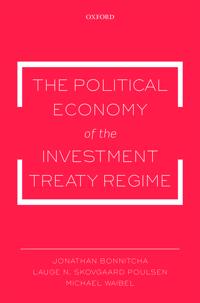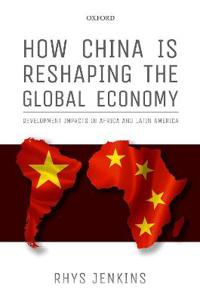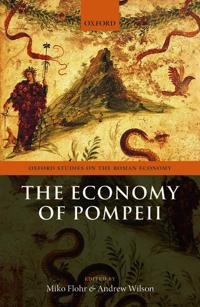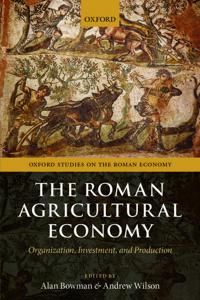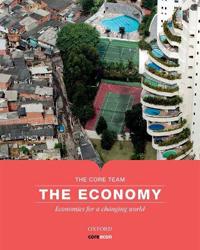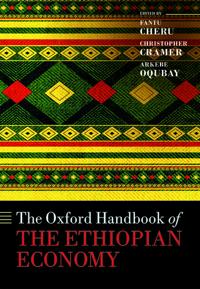The Political Economy of Monetary Solidarity
ISBN: 9780198717935 - UTGIVEN: 2017-04Creating the European monetary union between diverse and unequal nation states is arguably one of the biggest social experiments in history. This book offers an explanation of how the euro experiment came about and was sustained despite a severe crisis, and provides a comparison with the monetary-fi[...]
The Political Economy of the Investment Treaty Regime
ISBN: 9780198719557 - UTGIVEN: 2017-09Investment treaties are some of the most controversial but least understood instruments of global economic governance. Public interest in international investment arbitration is growing and some developed and developing countries are beginning to revisit their investment treaty policies. The Politic[...]
The Political Economy of European Banking Union
ISBN: 9780198727927 - UTGIVEN: 2016-11The establishment of Banking Union represents a major development in European economic governance and European integration history more generally. Banking Union is also significant because not all European Union (EU) member states have joined, which has increased the trend towards differentiated int[...]
Britain and Ireland, 1050-1530: Economy and Society (Pocket)
avRichard Britnell
ISBN: 9780198731450 - UTGIVEN: 2004-09-23Global Political Economy
ISBN: 9780198737469 - UTGIVEN: 2017-02The only introduction to Global Political Economy that lets students learn from the very top scholars in the field. The fifth edition of this popular text offers a comprehensive introduction to global political economy, combining theory, history, and contemporary issues and debates. Renowned for it[...]
How China is Reshaping the Global Economy
ISBN: 9780198738510 - UTGIVEN: 2018-11China's growing economic involvement in Sub-Saharan Africa and Latin America has been a source of major controversy. The official Chinese position maintains that the growth of bilateral relations is of mutual benefit and provides a good example of South-South cooperation. Critics on the other hand s[...]
The European Union: Economy, Society, and Polity (Pocket)
ISBN: 9780198742869 - UTGIVEN: 2002-01-31Covers the issues of competitiveness, cohesion, ageing, migration, employment and social polarization, enlargement, and the emergence of regionalism and nationalism. This textbook is an introduction to economic, social and political challenges that the EU faces. These challenges determine the place [...]
The Economy of Ghana Sixty Years After Independence
ISBN: 9780198753438 - UTGIVEN: 2017-02As Ghana approaches its 60th birthday, optimism and worries for the future continue to be present in equal measure. Economic growth in the last decade has been high by historical standards. Indeed, recent rebasing of GDP figures has put Ghana over the per capita income threshold into Middle Income C[...]
New European Economy Revisited, The (Pocket)
avLoukas Tsoukalis
ISBN: 9780198774778 - UTGIVEN: 1997-03-13The Economy of Pompeii
ISBN: 9780198786573 - UTGIVEN: 2017-02This volume presents fourteen papers by Roman archaeologists and historians discussing approaches to the economic history of Pompeii, and the role of the Pompeian evidence in debates about the Roman economy. Four themes are discussed. The first of these is the position of Pompeii and its agricultura[...]
The Roman Agricultural Economy (häftad)
ISBN: 9780198788522 - UTGIVEN: 2017-10This volume is a collection of studies which presents new analyses of the nature and scale of Roman agriculture in the Mediterranean world from c. 100 BC to AD 350. It provides a clear understanding of the fundamental features of Roman agricultural production through studying the documentary and arc[...]
The Political Economy of Clean Energy Transitions
ISBN: 9780198802242 - UTGIVEN: 2017-06This is an open access title available under the terms of a CC BY-NC-SA 3.0 IGO licence. It is free to read at Oxford Scholarship Online and offered as a free PDF download from OUP and selected open access locations. The 21st Conference of the Parties (CoP21) to the United Nations Framework Conventi[...]
Economy - economics for a changing world (häftad)
ISBN: 9780198810247 - UTGIVEN: 2017-10The only introductory economics text to equip students to address today's pressing problems by mastering the conceptual and quantitative tools of contemporary economics. OUP has partnered with the international collaborative project of CORE researchers and teachers to bring students a book and learn[...]
The Oxford Handbook of the Ethiopian Economy
ISBN: 9780198814986 - UTGIVEN: 2019-01From a war-torn and famine-plagued country at the beginning of the 1990s, Ethiopia is today emerging as one of the fastest-growing economies in Africa. Growth in Ethiopia has surpassed that of every other sub-Saharan country over the past decade and is forecast by the International Monetary Fund to [...]
Strategy, Economic Organization, and the Knowledge Economy: The Coordination of Firms and Resources (Pocket)
avNicolai J. Foss
ISBN: 9780199205325 - UTGIVEN: 2006-06-29Contours of the World Economy 1-2030 AD (Pocket)
avAngus Maddison
ISBN: 9780199227204 - UTGIVEN: 2007-09-01Written by a pioneer in the quantitative and macroeconomic analysis of economic history, this book combines qualitative histories with quantitative data. It also seeks a new understanding of the forces of economic growth and development by taking the ultimate long view - the whole of the last millen[...]
Are Skills the Answer?: The Political Economy of Skill Creation in Advanced Industrial Countries (Pocket)
avColin Crouch, David Finegold, Mari Sako
ISBN: 9780199241118 - UTGIVEN: 2001-03-08Decentralizing Development: The Political Economy of Institutional Change in Colombia and Chile (Inbunden)
avAlan Angell, Pamela Lowden, Rosemary Thorp
ISBN: 9780199242313 - UTGIVEN: 2001-01-25Incentives and Political Economy (Pocket)
avJean-Jacques Laffont
ISBN: 9780199248681 - UTGIVEN: 2001-10-18Bouncers: Violence and Governance in the Night-time Economy (Inbunden)
avDick Hobbs, Philip Hadfield, Stuart Lister, Simon Winlow
ISBN: 9780199252244 - UTGIVEN: 2003-03-20Economy of the Sacred in Hellenistic and Roman Asia Minor (Inbunden)
avBeate Dignas
ISBN: 9780199254088 - UTGIVEN: 2002-12-12Management Accounting in the Digital Economy
ISBN: 9780199260386 - UTGIVEN: 2004-01There is mounting evidence that the deployment of digital technologies by enterprises affects not just their functioning in economic terms, but also mobilizes broader social, institutional, and organizational effects. At a technical level, digitization directly influences organizational processes. N[...]
Structure of Regulatory Competition, The: Corporations and Public Policies in a Global Economy (Inbunden)
avDale D. Murphy
ISBN: 9780199267514 - UTGIVEN: 2004-01-22Mismanagement of Talent, The: Employability and Jobs in the Knowledge Economy (Pocket)
avPhillip Brown, Anthony Hesketh
ISBN: 9780199269549 - UTGIVEN: 2004-07-29Principled Agents?: The Political Economy of Good Government (Inbunden)
avTimothy Besley
ISBN: 9780199271504 - UTGIVEN: 2006-06-15

